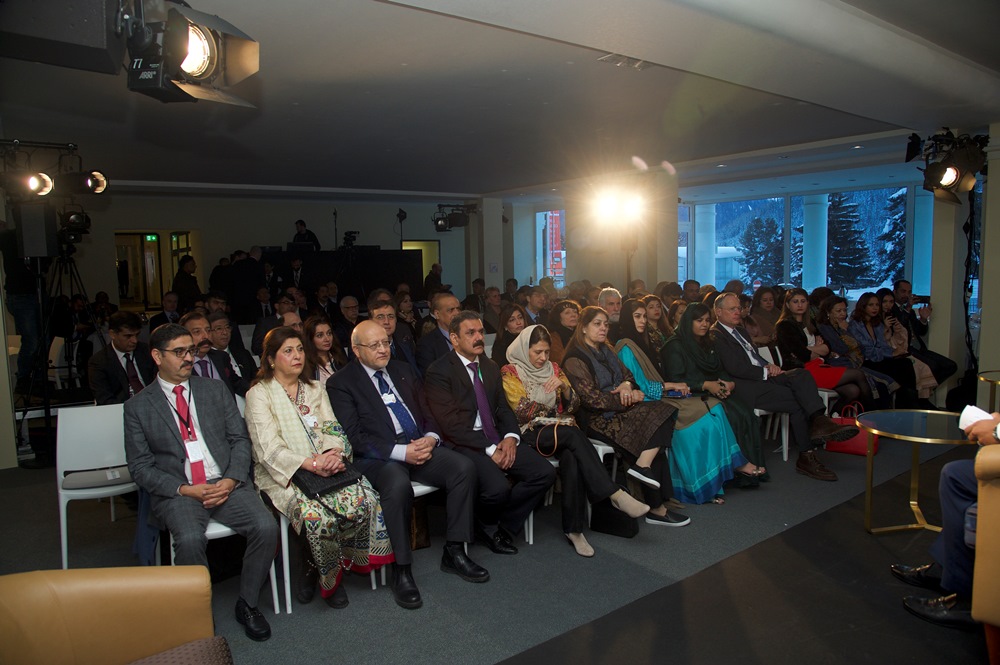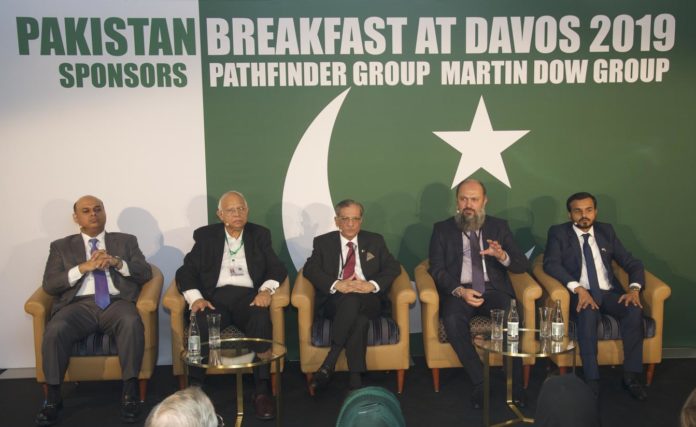Context
The international conferences where leading global thinkers and shapers gather to share insights on the present political, technological, and economic challenges are crucial to observe. Their thought processes help build a narrative and assist the rest to gauge the future direction.
The Davos World Economic Forum held every year in late January is just such a venue where political, intellectual, and corporate leaders share their knowledge. This year, it was reflective of the contradictions that the world presently confronts as it relates to the governance structures, the economic and political models, addressing climate change, and harnessing emerging technological advances in a mutually beneficial manner.
In some respects, these kinds of topics have lately been talked about at many other such conferences, but the irony in Davos could not have been starker this year when the European Union and Europe itself is in the grip of Brexit related confusion. And the strong influence behind globalization, represented by the US is adrift and under increasing nationalist and isolationist policies.
Hard debates took place at various Davos forums on the corporate role in the present economic woes, and responsibility towards tacking inequality, fixing the climate, and creating more jobs as Artificial intelligence (AI) and Big Data alter how the business will be conducted in the future. The dilemma remains that under globalization, the nation-state model, and state sovereignty, take more of a back seat and this is exactly what has resulted in the populist responses such as American First or Brexit.
Globalization and Reforms
Consider the statements of Angela Merkel, one of the Keynote speakers at Davos this year. She emphasized Germany’s commitment to globalization and multilateralism and reiterated the risks. There is a new approach that we see in the world today, an approach that harbors doubts as to the validity of the international system, she stated.
Indirectly countering Trump’s America First mantra she added: I think (that when it comes to) our national interests I think we should always understand them in such a way that we always remember that others also have their own vested interests, factor them in, and then shape a win-win situation that will guide us in international politics.
The Chinese perspective was reflected in one of the discussions titled When Global Order Fails by Fang Xinghai, who is the Vice Chairman of China’s Securities Regulatory Commission. Xinghai commented that the West should not make China a scapegoat for what is not working in the Western democratic system and that reforms were needed to fix those issues, which have nothing to do with China.
Commenting on why US worries about China, Xinghai replied that the US should be open in accepting polities that operate differently, because if they do not, it would mean excluding China, Russia, and pretty soon India as well. Adam Tooze, who is a historian from Columbia University, further elaborated the response. He pointed out to the evolution of Indian democracy under Prime Minister Modi, which does not resemble democratic norms especially when considering its Muslim population.

Emerging Technologies and Digital Consensus
The technological upheaval is another aspect of the global flux. Like globalization, the Internet and Internet of Things (IOT), Big Data and AI work best when there are no hindrances in the way. However, this has great risks and fears associated with it, when knowledge and technology (automation) is replacing traditional sources of labor. It could become, if not already, a new source that exasperates global inequality.
Quoting McKinsey’s Global Institute (MGI) report Globalization in Transition, the Managing Partner Kevin Sneader wrote on the company blog:
“for the first time, the emerging markets now make 50 percent of the counterparts in global trade. While these markets are perhaps more optimistic about growth than many developed economies are, they face their own challenges as knowledge and technology replace labor as the critical sources of arbitrage in global value chains”.
Therefore, the globalists desire a new form of technological consensus to shape the digital future that balances the state sovereignty with in the globalized structure. Or as Elizabeth Heineman writes in The Conversation:
“Merkel’s and Europe’s quandary is this: how to move forward in the digital age when Europe’s contribution is to seek balance between state power, individual rights and the dynamism of capitalism. Achieving that balance achieving any balance means slowing things down. It means philosophizing”. Achieving this equilibrium is what Angela Merkel terms Social Market Economy.
The Japanese Prime Minister reflected his sentiments on the subject:
“I call on all of us to rebuild trust toward the system for international trade. That should be a system that is fair, transparent, and effective in protecting IP (intellectual property) and also in such areas as e-commerce and government procurement”, Abe stated in his speech.
While there are many international agreements to address security and trade related matters there are no such agreements when it comes to the digital world especially in the realm of Cyber threats, AI and Big Data etc. This is a cause of enormous concern for nations that are competing in these emerging technologies.
Geopolitics and Economics
The tussles of the global balance of power between the emerging and established powers is obviously not just restricted to security affairs, it also includes trade and technology domains. The ongoing economic tensions between the US and China are having a ripple effect downstream with negative impact on globalization.
The primary concern being that by learning and tweaking the laissez-faire system, China is exploiting it and negatively impacting the American economic outlook, as it relates to protection of Intellectual Property and by forced Technology Transfers. Moreover, there is a pressure on China to address the trade imbalances by opening its market more. Obviously if the Chinese economy continues to strengthen at the cost of others, it will also reflect in its global defense posture and influence.
The other Asian nations are increasingly concerned as US appears to be withdrawing from international regimes, and this they think would only benefit the Chinese. According to them, the best way for the US to address its apprehensions is by staying in the system and by negotiating. Moreover, the debates also continue on the best way to engage each other and address differences.
Multilateral approaches, as adopted by the US in the past, complicate the negotiations. Conversely, the Chinese have benefited by engaging in bilateral tracts, however, in bilateral negotiations the stronger party usually benefits. Nonetheless, the US is increasingly moving towards adopting bilateral talks for engaging and negotiating.
Then there are concerns that a Cold War is developing between China and the US and what that would mean for the international system. Will this result in to a new alignment with other nations being pushed in to one block or the other. A comparison is also being made with the nature of Cold War between the then Soviet Union and US. That Cold War was primarily in the defense and security realm, and not as much in trade, as is the case between US and China now. And just because of this difference, it may not mature in to a full fledge Cold War.
Many of the above dimensions were discussed in an event titled The Geopolitical Agenda, moderated by Vali Nasr. The panel recognized that the Belt and Road Initiative (BRI) is changing the geopolitical landscape and in ten years the results will be obvious.
In this context, the Pathfinder and Dow Martin Groups held discussions related to the China-Pakistan Economic Corridor, moderated by the Chairman of Pathfinder Group, Ikram Sehgal. The speakers, which included the Chief Minister of Balochistan province Jam Kamal Khan, promoted investment opportunities in the mineral rich and strategically located Balochistan province of Pakistan. The province borders Iran and Afghanistan, where not only the Pakistan-India rivalry is playing out, but also the tussles of the global balance of power.

Conclusion
In many of the discussions referred above, the common worry remained how the US-China trade rivalry is going to unfold and how it will impact different businesses and free trade. However, one could see some confusion in grasping the connection between the economic and security domains.
The optimists thought that because the nature of competition is mainly economic, these differences could be managed. But they miss the point that is raising concern for the US: globalization has made China tremendously stronger very quickly, and this would also translate in to defense and technological wherewithal. After all, the nation-state system, and national interests, still exist and cannot be wished away.
China preaches engagement and negotiations, and stands ready to address the trade imbalances and grievances, while admitting to the benefits of the liberal trade system. Will this be enough to save globalization remains to be seen. After all, trade wars are linked to the change in the global balance of power. What is particularly worrisome is that the US no longer sees eye to eye on these matters with its traditional European allies. Moreover, the Europeans do not have consensus amongst themselves either. At no time since World War II, has the division between the globalists and the nationalists, been so acute.





